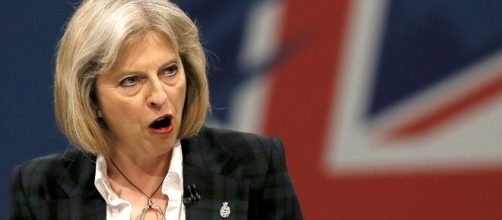Yesterday’s Election Results proved to be a devastating blow for the Tories -- Britain’s conservative party -- in which the Tories lost the majority in the House of Commons, partially due to Prime Minister Theresa May’s decision to have a snap general election.
The election results are no doubt an indicator to May and her staff how British citizens feel about her policies and leadership. However, despite the results and calls for her resignation, May still plans to push forward with her proposal to create incredibly wide-ranging, strict internet regulations for British citizens.
British Prime Minister Theresa May says the internet must be regulated to prevent terrorism https://t.co/etsdEqy3bs pic.twitter.com/0DBNLcbaB9
— CNN (@CNN) June 5, 2017
Internet regulation
May’s strategy is to vastly extend the powers of the country's security services, which would allow them to not only regulate the internet, but also give them the authority to force internet companies to give spies permission to read everyone’s private messages. As with many freedom-restricting policies proposed in the post-9/11 era, the justification for this policy is essentially Islamic extremism.
These new regulations would heavily dictate what would and wouldn’t be allowed to be posted and read on the internet, not to mention that May herself has said that she hasn't ruled out Chinese-style internet censorship and would even go as far as shutting down companies who refuse to comply with these severe restrictions.
But what is perhaps even more frightening is her plan to launch a global campaign to further control cyperspace in which she is seeking international agreements to do so.
There’s no doubt that May’s emphasis on this proposal has heavily been influenced by the recent Manchester Arena bombing, as well as the London Bridge attacks. Despite the fact that experts have agreed that there’s no proof that internet communications played a vital role in these attacks, and the warnings that these regulations could actually end up helping terrorists, May still remains fully committed to her plan.
Outcome
Although history has proven that terrorist attacks often leave citizens more compliant in terms of trading away their own personal freedoms for safety, the recent election results for the House of Commons may suggest otherwise.
Without the House majority and the resignation of May’s closest Joint Chiefs of Staff, Nick Timothy and Fiona Hill following the results, it will undoubtedly prove to be a difficult task to get her proposal passed.
Theresa May relied heavily on her 2 top aides, but they offended many and were pressured to resign https://t.co/zuaCForn2U
— The New York Times (@nytimes) June 10, 2017
There has never been a more important time for British citizens to stand up to their government for the sake of freedom of expression. If these regulations get passed into law, it would set an incredibly dangerous precedent for democracies across the globe.


